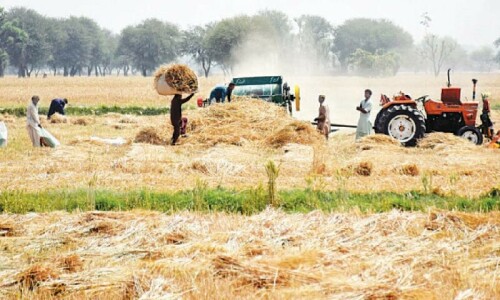ISLAMABAD: With initial support from the International Atomic Energy Agency (IAEA), the National Institute for Agriculture and Biology (Niab) has made significant strides in developing and planting salt-tolerant crops and implementing soil management techniques to combat salinisation.
Niab has now started sharing its expertise with other countries affected by soil salinisation, by offering training to their scientists, according to information released by IAEA.
Pakistan has lost 5.7 million hectares of arable land due to soil salinisation. This figure is growing by 40,000 hectares each year, Niab estimates. Most crops are unable to grow in soil with high salt levels, turning fields into desert landscapes and posing a serious threat to food security.
Over the last three years, with IAEA support, Niab conceptualised and organised specific training to expand the expertise in the region. In total, 21 scientists and soil specialists from Azerbaijan, Burundi, Iraq, Lesotho and Senegal have been trained on relevant isotopic techniques through fellowships and scientific visits.
To support the Asia-Pacific region, Niab experts also trained 39 members of the regional scientific community on climate-smart agriculture practices to boost climate change resilience.
Published in Dawn, August 10th, 2024














































